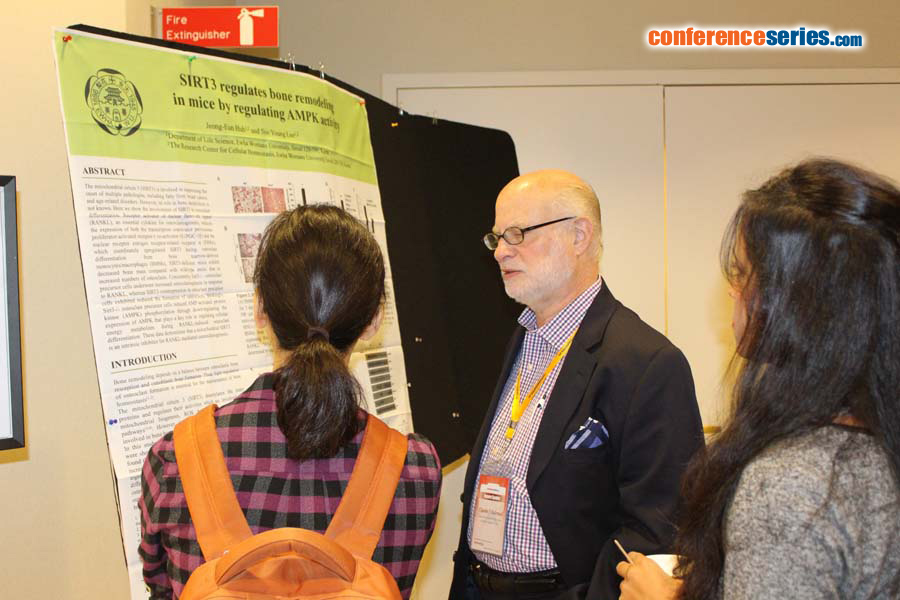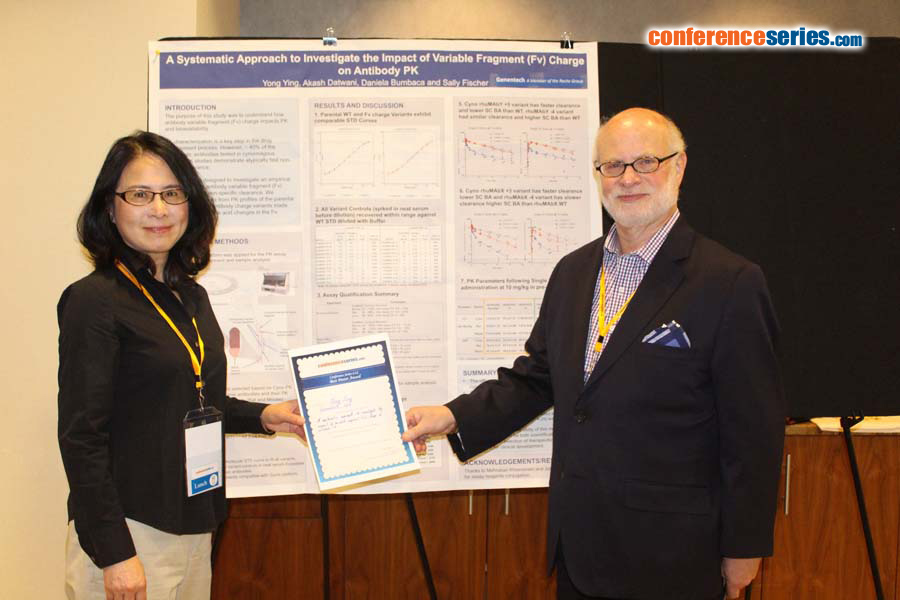Km Neelofar
Aligarh Muslim University, India
Title: Serum autoantibodies against glycated-HSA in patients with diabetes mellitus: Role of protein glycation in the kidney dysfunction
Biography
Biography: Km Neelofar
Abstract
Non-enzymatic reaction between proteins and glucose leads to glycated proteins which, depending on the number of glucose molecules attached to them. Numerous studies in vivo have reported strong involvement of glycated-HSA in the development and progression of chronic complications of diabetes mellitus. In this study, HSA was purified from diabetic patients with and without chronic kidney disease (CKD) and healthy subjects and immunological studies have been done to detect the presence of autoantibodies against glycated-HSA in diabetic patients. Antioxidant activity of isolated glycated-HSA was also evaluated by RBCs hemolysis test. Result indicates that free radical scavenging capacities of HSA were decreased in diabetic patients with or without CKD. Furthermore, ELISA results showed presence to autoantibodies towards glycated-HSA in diabetic patients. Strong binding and inhibition of anti-Amadori-albumin-IgG by HSA purified from diabetic patients with or without CKD was found significantly high, while very low inhibition was observed by HSA purified from healthy subjects. These results point towards epitope sharing between the Amadori-albumin and the HSA isolated from diabetic patients. Thus we can conclude here that glycation-induced modifications have a determinant impact on functional properties of HSA that may be related to alteration in its conformation. Because of this deformity, oxidative state may have increased in diabetic patients especially with CKD and glycated albumin could not provide its specific duty towards biological system. This glycated-HSA may be recognized as foreign molecule by immunological system and autoantibodies have been generated against them that may play significant role in disease progression. Findings of this study indicate pathogenic role of glycated-HSA in initiation and acceleration of kidney dysfunction in diabetic patients with CKD.





